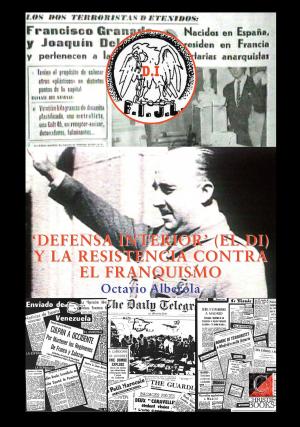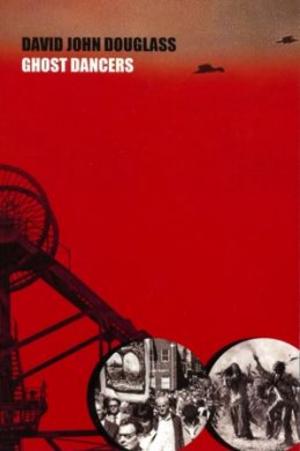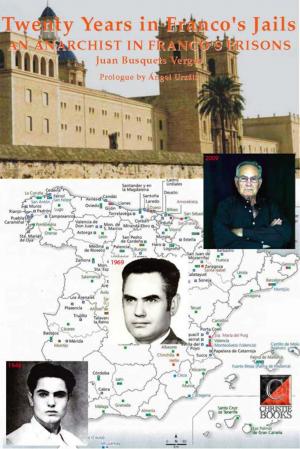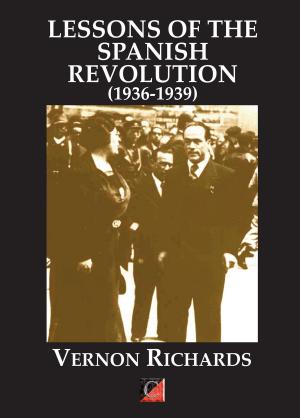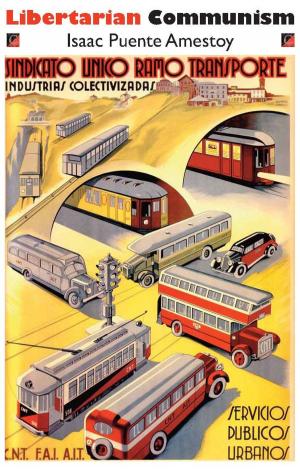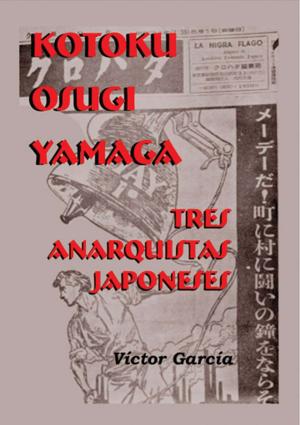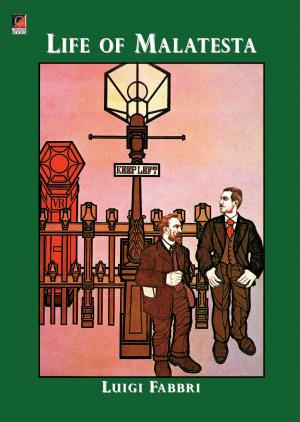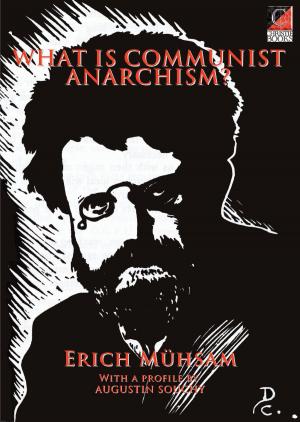WE WERE THE REBELS, WE WERE THE MARAUDERS
Fragments of an Outlaw Autobiography
Nonfiction, History, Italy, Biography & Memoir, Political, Historical| Author: | Belgrado Pedrini | ISBN: | 1230000272587 |
| Publisher: | ChristieBooks | Publication: | October 7, 2014 |
| Imprint: | ChristieBooks | Language: | English |
| Author: | Belgrado Pedrini |
| ISBN: | 1230000272587 |
| Publisher: | ChristieBooks |
| Publication: | October 7, 2014 |
| Imprint: | ChristieBooks |
| Language: | English |
This is the story of Belgrado Pedrini, a self-educated 18-year-old who, in the early 1930s, threw himself into the revolutionary struggle at the height of Italian fascism’s hold on the state. It is about an anarchist who took up arms against fascism long before 1943, the year of the Anglo-American landings in Sicily, of Mussolini's brief fall from power and of the official beginnings of the Resistance. Well before the end of the truce between brown and red fascism; the red fascism that prompted the Italian Communist Party, the fiefdom of Togliatti, to urge its militants to infiltrate the vital mass structures set up by the fascists so that they might some day use them for their own purposes. It is the tale of a convict who, awaiting execution in prison in Massa with his comrades for having killed fascists, was released along with all the rest by a group of partisans in June 1944. The tale of a fighter who did not lay down his arms come the liberation of the national territory. The tale of a 32-year-old former partisan arrested in May 1945 and sentenced four years later to 30 years in prison, accused of killing a police officer and expropriating fascist industrialists in Carrara, Milan and La Spezia. Criminal offences these, despite having been carried out prior to 1943 — and by anarchists to boot. Convicted like hundreds of other ex-partisans not disposed to embrace the delights of the perverted democracy imposed by the Communist Party and the Christian bourgeois or reformist parties. It is the story of a prisoner who, through escape attempts and mass mutinies, did not emerge from the hell of imprisonment until the mid-1970s, having served his full 30-year sentence. It is, finally, the story of a rebel who after his release continued using every weapon in the armoury of criticism, from establishing a people’s library, to his articles for L'Amico del Popolo, not forgetting his support for the libertarian armed struggle group, Azione Rivoluzionaria (1976-1979).
Orphaned at the age of 9, Belgrado was named after the Serbian capital by his freethinking father, a friend and admirer of Errico Malatesta, a sculptor who had spent time in that city. A convert to anarchism at the age of 18 (through reading the anarchist classics), Belgrado was involved in a number of anti-fascist actions by Carrara’s libertarian groups, which eventually resulted in his arrest and imprisonment on the penal island of Pianosa in 1937-’38. On his release he returned to Carrara — and anarchist activism — where he worked as a bus conductor. In 1942 Pedrini and his close friends and fellow anarchists Giovanni Zava and Gino Giorgio were involved in a bar brawl with five fascists, whom they disarmed, beat up, and then fled to Milan where, in November that year they were challenged by police while flyposting anti-fascist leaflets. Shooting their way out of the predicament, the three escaped to Genoa then to La Spezia where they were finally cornered in a hotel by Mussolini’s secret police (OVRA). During this standoff a policeman was killed and all three comrades, seriously wounded, were arrested and taken to La Spezia jail, and then to Massa di Carrara to await trial and certain death by firing squad. Fortunately, however, they were released in June 1944 when partisans attacked Massa jail. Many of then, including Belgrado, then joined the guerrillas in the war against the Nazis and fascists of the Salò Republic. Soon after the Liberation in May 1945, Belgrado was re-arrested on charges relating to the earlier La Spezia incident and other actions from this period, including expropriations of a number of marble industrialists in Carrara, La Spezia and Milan. The trial judges treated Belgrado’s case as criminal, ignoring the political and anti-fascist nature of his actions and, in May 1949, sentenced him to life imprisonment, which was later commuted to 30 years...
This is the story of Belgrado Pedrini, a self-educated 18-year-old who, in the early 1930s, threw himself into the revolutionary struggle at the height of Italian fascism’s hold on the state. It is about an anarchist who took up arms against fascism long before 1943, the year of the Anglo-American landings in Sicily, of Mussolini's brief fall from power and of the official beginnings of the Resistance. Well before the end of the truce between brown and red fascism; the red fascism that prompted the Italian Communist Party, the fiefdom of Togliatti, to urge its militants to infiltrate the vital mass structures set up by the fascists so that they might some day use them for their own purposes. It is the tale of a convict who, awaiting execution in prison in Massa with his comrades for having killed fascists, was released along with all the rest by a group of partisans in June 1944. The tale of a fighter who did not lay down his arms come the liberation of the national territory. The tale of a 32-year-old former partisan arrested in May 1945 and sentenced four years later to 30 years in prison, accused of killing a police officer and expropriating fascist industrialists in Carrara, Milan and La Spezia. Criminal offences these, despite having been carried out prior to 1943 — and by anarchists to boot. Convicted like hundreds of other ex-partisans not disposed to embrace the delights of the perverted democracy imposed by the Communist Party and the Christian bourgeois or reformist parties. It is the story of a prisoner who, through escape attempts and mass mutinies, did not emerge from the hell of imprisonment until the mid-1970s, having served his full 30-year sentence. It is, finally, the story of a rebel who after his release continued using every weapon in the armoury of criticism, from establishing a people’s library, to his articles for L'Amico del Popolo, not forgetting his support for the libertarian armed struggle group, Azione Rivoluzionaria (1976-1979).
Orphaned at the age of 9, Belgrado was named after the Serbian capital by his freethinking father, a friend and admirer of Errico Malatesta, a sculptor who had spent time in that city. A convert to anarchism at the age of 18 (through reading the anarchist classics), Belgrado was involved in a number of anti-fascist actions by Carrara’s libertarian groups, which eventually resulted in his arrest and imprisonment on the penal island of Pianosa in 1937-’38. On his release he returned to Carrara — and anarchist activism — where he worked as a bus conductor. In 1942 Pedrini and his close friends and fellow anarchists Giovanni Zava and Gino Giorgio were involved in a bar brawl with five fascists, whom they disarmed, beat up, and then fled to Milan where, in November that year they were challenged by police while flyposting anti-fascist leaflets. Shooting their way out of the predicament, the three escaped to Genoa then to La Spezia where they were finally cornered in a hotel by Mussolini’s secret police (OVRA). During this standoff a policeman was killed and all three comrades, seriously wounded, were arrested and taken to La Spezia jail, and then to Massa di Carrara to await trial and certain death by firing squad. Fortunately, however, they were released in June 1944 when partisans attacked Massa jail. Many of then, including Belgrado, then joined the guerrillas in the war against the Nazis and fascists of the Salò Republic. Soon after the Liberation in May 1945, Belgrado was re-arrested on charges relating to the earlier La Spezia incident and other actions from this period, including expropriations of a number of marble industrialists in Carrara, La Spezia and Milan. The trial judges treated Belgrado’s case as criminal, ignoring the political and anti-fascist nature of his actions and, in May 1949, sentenced him to life imprisonment, which was later commuted to 30 years...

